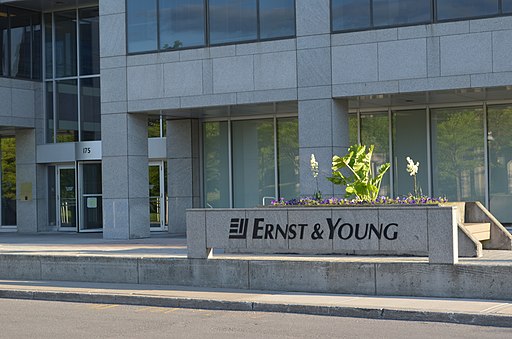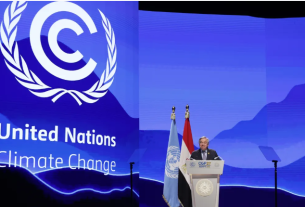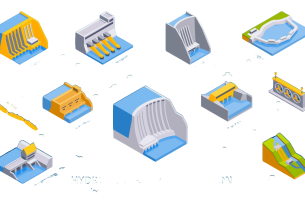by Gael O’Brien
EY, the consulting and audit firm, possesses a real sense of irony about ethics.
When the huge global firm earlier this month announced proposed plans to split into two separate organizations – one doing mainly auditing work and the other doing consulting and advisory work – most analysts cited it as an effort to help avoid conflicts of interest between the two businesses. The headline of a Bloomberg Tax article in May 2022 (before EY leaders voted on the split) was “EY Consulting Split Aims to Free Firm from Ethics Crackdown.”
“We firmly believe that we can embrace the changing landscape, build businesses that redefine the future of our professions, create exciting new opportunities, and deliver greater long-term value for EY people, clients and communities,” EY said in announcing the planned changes.
What EY didn’t discuss in its announcement was that only three months ago, in June 2022, EY agreed to pay a $100 million fine and comply with a 16-page Securities and Exchange Commission (SEC) Order that included twenty “undertakings” the firm would pursue over three years to address ethical issues involving “failures to act with the integrity of a public company auditor.” Specified violations included:
- Hundreds of audit professionals from 2017 to 2021 cheated on exams (especially ethics portions) needed to maintain their Certified Public Accountant (CPA) licenses;
- Significant numbers of employees knew cheating was occurring but didn’t report it;
- EY’s ineffective regular emails on integrity and not cheating; and
- EY intentionally misdirecting an SEC investigation.
Integrity Lite?
Integrity Lite is about words without anchors, like “doing the right thing” (one of EY’s values) and self-justifying the idea that you’re not cheating when, in fact, you are. Ironically, EY’s February 2022 Global Integrity Report helps explain why integrity often stays aspirational and ethical standards aren’t top of mind.
The report surveyed nearly 5,000 board members, senior management, managers, and other employees. Some findings:
- While 97 % of respondents agree integrity is important,
- only 33% “believe behaving with ethical standards is an important characteristic of integrity;” and
- only 50% “cite compliance with laws, regulations and codes of conduct as being an important characteristic of integrity;”
- Of all surveyed board members,
- 42% agree unethical behavior in senior or high performers is tolerated in their organization (up eight points from 2020);
- 18 percent “would be prepared to mislead external parties such as auditors or regulators to improve their own career progression or renumeration;” and
- “While 60% of board members say their organization has frequently communicated about the importance of integrity in the last 18 months,” only 30% of employees remember it.
These red flags indicate that integrity matters in the big picture but respondents didn’t identify with integrity’s key attributes. For integrity and ethics to take root in every-day work settings, leaders need to explain, model, and act on values and the code of conduct. That works depending on how leaders see and respond to ethical and integrity issues in their own company.
Missing Integrity’s Point
At EY, ethical and integrity issues were words conveyed in values and the new Global Code of Conduct but clearly not a high priority.
In June 2019, the SEC sent EY a formal request asking whether EY knew of any current evidence of cheating. EY had just learned an audit professional had received an unsolicited exam answer key and reported it to a manager who told Human Resources. EY didn’t share the information with the SEC because it wanted to do its own investigation: it addressed instead resolved cheating issues. Nine months later, EY’s investigation finished, it sent information to the SEC. The 2022 Order gave EY credit for “a robust investigation,” but said time was lost and issues overlooked. The Order noted how investors were potentially impacted by EY’s delay:
“EY’s continued misrepresentations to the SEC Division of Enforcement significantly hindered the SEC’s ability to take action that would protect investors from audit professionals who do not understand their ethical obligations, fail to act with appropriate professional integrity and have not met – or needed to cheat in order to meet – minimum professional requirements to demonstrate their knowledge of important accounting principles.”
Included in the “undertakings” are “…policies, procedures and controls relating to ethics and integrity.” Also, EY is required to hire two consultants: one to review EY policies and procedures and the other to review EY disclosure failures. EY created a crisis that could have been avoided. However, being redirected to focus with greater intentionality on culture can enable words on paper to become actions.
Barriers to Ethics and Integrity
Increasingly, disconnects are getting in the way of creating cultures where ethics and integrity have a strong presence. Leaders looking for the disconnects find and resolve them if they want integrity to define their culture and stakeholders’ perceptions.
A barrier to strengthening ethics and integrity is leaders who see their culture as healthier and more ethical than it is. Creating with others company values and code of conduct can make the words chosen already feel engrained when they aren’t.
According to a 2022 Ethics and Compliance Initiative report, only about 15 percent of employees (from small to large organizations) “perceive a strong ethical culture in their organization “A useful question for managers to raise with their teams is: ‘what should a team with integrity act like and what do we need to do more of or less of?’”
The insights in EY’s Global Integrity Report 2022 would’ve been very useful guiding EY in 2019. For example, the Forward indicates another disconnect:
“The challenge is a growing gap between what organizations’ senior leaders say is important and what they are prepared to do for individual gain. What is sometimes called the “say-do“gap is not lost on employees as their confidence in the integrity standards of their management is much less than the managers’ confidence in themselves….”
Many EY audit professionals said they didn’t report exam cheating because they didn’t realize sharing answers was cheating. Others said they didn’t realize they’d violated the code of conduct. Troubling answers. Heavy workloads or not passing the exam previously were excuses from those who cheated. While cheating has no defense, it raises the question, if you want competent professionals, how should a culture support them? If EY had made temporary work adjustments or involved senior CPA’s in ethics training support would that have strengthened the culture and reduced cheating?
Simple Ideas for Reinforcing Ethics and Integrity
To support healthy work cultures, strengthening ethics and integrity is imperative and it will take long-term strategies. However, progress can be made by acting on what makes ethics and integrity more accessible, visible, and tangible. This short list is intended as a thought starter.
- Fifty-five percent of Fortune 100 organizations identify integrity as a core value. However, until a company defines integrity or any value clearly, so employees understand what specific qualities and behaviors are expected, the value lacks power. Managers can play a key role with their teams clarifying and modeling what’s expected if senior leaders set the stage.
- The statistics of only 30 percent of employees remembering emails sent about integrity argue for rethinking how communication can be more interactive and less passive connecting employees to important information.
- Companies including their core values in Job Postings enable applicants to see that values are taken seriously. Prospects are likely to read everything in a posting. Seeing the values sends a message that will likely stay with them if hired.
Leaders need to guard against being ethically mute. The more they create teachable moments bringing stories involving integrity, ethics, or values into a discussion, the more employees understand the behavior expected.
- Companies having internal events for interested employees could create an integrity-ethics roundtable discussion on ethical decision-making using material from business news stories. It could also be used for managers to talk through with their teams ethical problems that arise. Employees need this practice so they are better equipped in understanding and acting on ethical dilemmas.
- The McCombs School of Business (University of Texas at Austin) created over 30 Ethics Unwrapped videos on topics making ethics more accessible. The videos are about 5-minutes, informative, easy to watch and cleverly done. This video on Bounded Ethicality is an example.
Strengthening integrity and ethics strengthens leaders and culture. It also sends Integrity Lite to the recycling bin.
Photo: Raysonho @ Open Grid Scheduler / Grid Engine, CC0, via Wikimedia Commons
Gael O’Brien is a catalyst in leaders leading with purpose and impact through clarity, presence and connection. She is an executive coach, culture coach, speech coach and presenter. She publishes The Week in Ethics and is also a Business Ethics Magazine columnist, on the Advisory Board of the Hoffman Center for Business Ethics at Bentley University, and a Senior Fellow Social Innovation, the Lewis Institute at Babson College.



